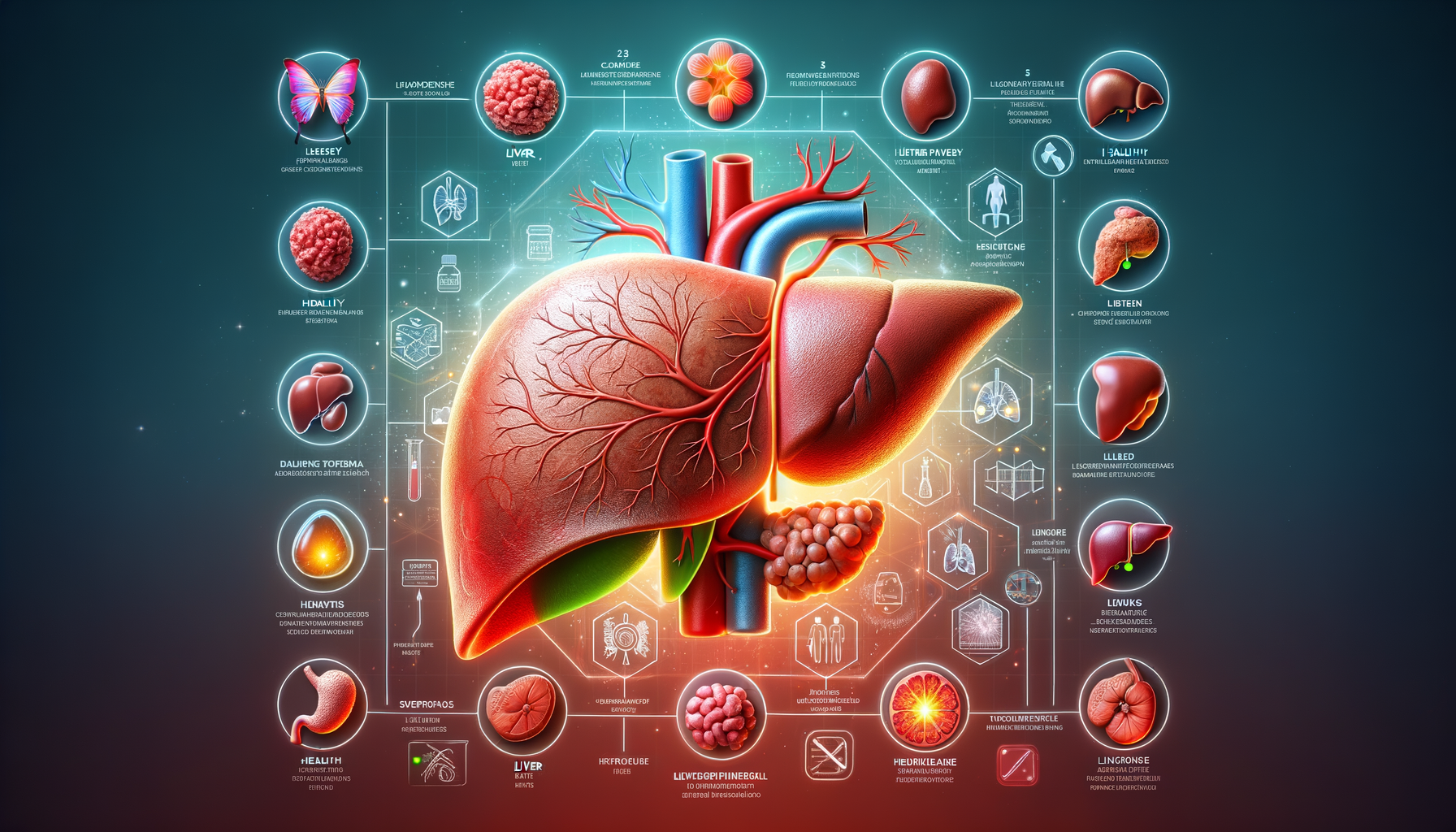
Know the Signs: Symptoms That May Point to Liver Trouble
Understanding the Role of the Liver
The liver is a vital organ that performs numerous functions crucial to maintaining overall health. It acts as a filter for blood coming from the digestive tract before passing it to the rest of the body. Additionally, the liver detoxifies chemicals, metabolizes drugs, and secretes bile that ends up back in the intestines. Understanding liver function is essential as it helps in identifying potential issues early on. When the liver is not functioning properly, it can lead to a range of health problems. Recognizing liver function symptoms is a key step in addressing these issues before they escalate.
One of the primary functions of the liver is to produce proteins that are important for blood clotting and other functions. It also stores glucose and converts it into energy as needed. The liver’s ability to regenerate itself is remarkable, but when it is overburdened, it may send out distress signals. These signals, or symptoms, can vary widely and may sometimes be mistaken for other health issues, making it even more important to pay attention to subtle changes in your body.
By understanding the liver’s role in the body, individuals can better appreciate the importance of maintaining liver health. This involves being aware of dietary choices, lifestyle habits, and recognizing early signs of liver trouble. Regular check-ups and liver function tests can provide valuable insights into the liver’s health status, allowing for timely interventions if necessary.
Common Signs of Liver Problems
Liver problems can manifest in various ways, and being aware of these signs can lead to early detection and treatment. Some of the most common liver function symptoms include:
- Jaundice: A yellowing of the skin and eyes, indicating a buildup of bilirubin in the blood.
- Fatigue: Unexplained tiredness that doesn’t improve with rest.
- Swelling: Particularly in the abdomen and legs, which may indicate fluid retention.
- Dark urine and pale stools: Changes in excretion can signal liver distress.
- Nausea or vomiting: Persistent stomach issues that are not related to other conditions.
These symptoms can be indicative of liver issues but are not exclusive to liver disease. Therefore, if you notice any of these signs, it is advisable to consult a healthcare professional for a thorough evaluation. Early diagnosis and treatment can prevent further liver damage and improve the quality of life.
It’s also important to note that some liver problems may not present noticeable symptoms in the early stages. This is why regular medical check-ups and liver function tests are critical, especially for individuals with risk factors such as obesity, excessive alcohol consumption, or a family history of liver disease.
Subtle Warning Signs of Liver Disease
While some liver function symptoms are more apparent, others can be subtle and easily overlooked. Recognizing these early warning signs can be crucial in preventing serious liver conditions. Some subtle symptoms include:
- Itchy skin: Persistent itchiness without an apparent cause can be a sign of liver dysfunction.
- Spider angiomas: Small, spider-like blood vessels visible on the skin.
- Easy bruising or bleeding: The liver’s role in producing clotting proteins means that dysfunction can lead to increased bleeding.
- Loss of appetite: A sudden decrease in appetite or unexplained weight loss can be a sign of liver issues.
These symptoms might not immediately point to liver problems, but they should not be ignored. If you experience these signs, especially in combination with more common symptoms, seeking medical advice is recommended. Understanding these subtle signs can empower individuals to take proactive steps in managing their liver health.
Additionally, lifestyle factors such as diet, alcohol consumption, and medication use can influence liver health. Being mindful of these factors and making necessary adjustments can help in maintaining a healthy liver and preventing potential problems.
How to Recognize If Your Liver Needs Attention
Recognizing when your liver needs attention involves being aware of both common and subtle symptoms, as well as understanding your personal risk factors. If you have a family history of liver disease, are overweight, or consume alcohol regularly, you may be at higher risk for liver problems.
Regular liver function tests can provide insights into how well your liver is working. These tests measure levels of liver enzymes, bilirubin, and proteins in the blood, helping to detect liver damage or disease. If test results indicate liver dysfunction, further evaluation and treatment may be necessary.
In addition to medical tests, paying attention to your body’s signals is crucial. If you experience persistent symptoms such as fatigue, jaundice, or abdominal swelling, it is important to seek medical advice. Early intervention can prevent more serious complications and improve outcomes.
Maintaining a healthy lifestyle is also key to liver health. This includes a balanced diet, regular exercise, and avoiding excessive alcohol consumption. By taking these steps, individuals can support their liver function and reduce the risk of liver disease.
Conclusion: Taking Charge of Your Liver Health
Understanding liver function symptoms and recognizing the signs of potential liver problems is crucial for maintaining overall health. The liver plays a vital role in numerous bodily functions, and its health should not be taken for granted. By being aware of both common and subtle symptoms, individuals can take proactive steps to address liver issues early on.
Regular medical check-ups, liver function tests, and a healthy lifestyle are key components of liver health. By paying attention to your body’s signals and taking appropriate action, you can support your liver’s function and prevent serious health complications.
Ultimately, taking charge of your liver health involves staying informed, making healthy choices, and seeking medical advice when necessary. By doing so, you can ensure that your liver continues to perform its vital functions effectively, contributing to your overall well-being.


